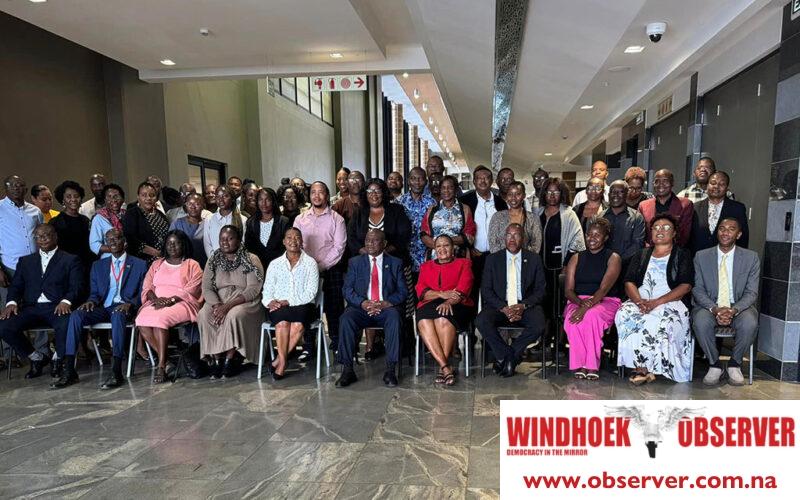Niël Terblanché
The minister of health and social services, Dr Kalumbi Shangula, laid out the government’s strategic roadmap for reinforcing the country’s healthcare and social services infrastructure at the Ministerial National Health and Social Welfare Conference on Monday.
The week-long conference, held in Windhoek, seeks to assess the state of healthcare delivery and social services while making recommendations for improvement.
While officially opening the conference, Shangula described the conference as a platform for “unpacking the work that we do as a Ministry” and an opportunity to reflect on past successes and failures in order to craft actionable strategies moving forward.
He said that the conference is aimed at ensuring that all Namibians, regardless of their geographic location, have access to high-quality healthcare delivered by a “dedicated, equipped, knowledgeable, empowered workforce.”
“Namibia’s commitment to both national and global healthcare goals, particularly Universal Health Coverage (UHC) is unrelenting,” he said.
He referred to the recent Political Declaration on UHC adopted by over 190 countries at the United Nations General Assembly, which focuses on the need for equitable access to healthcare services without financial hardship.
“This declaration serves as a renewed call to action for countries, including Namibia. The ministry’s focus remains on creating a resilient health care system driven by data, propelled by science, and underpinned by a clear vision,” Shangula said.
He pointed out the ministry’s N$16 billion, five-year plan, approved by the Cabinet in 2023, aimed at enhancing physical infrastructure, medical equipment, and human resources.
Shangula also pointed to recent developments, including the commissioning of new dialysis units in Katutura and Oshakati, which he proudly described as the first world where even the poor can access this service.
He also addressed the issue of staff attitudes, noting complaints from the public about bureaucratic inefficiencies and poor service delivery, urging staff to adopt a more compassionate and professional approach.
Shangula urged conference participants to engage in constructive discussion and come up with innovative solutions to the country’s healthcare challenges.
He added that their contributions and commitment are vital for achieving the goals of Vision 2030.
Dr Ester Muinjangue, the deputy health minister while addressing conference participants, stressed the importance of leadership and collaboration in addressing gaps in service delivery.
“Leadership at both national and subnational levels is crucial for the transformation we seek,” she said while urging senior managers to engage actively in the discussions during the conference.




